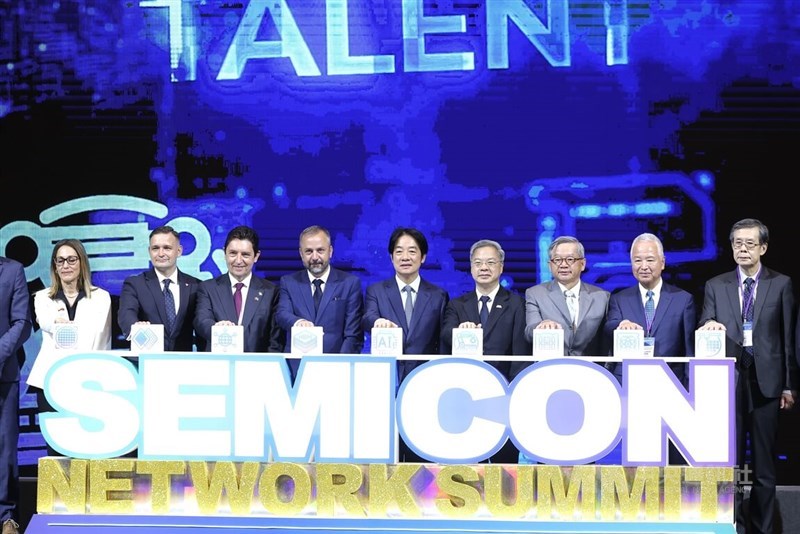
Taipei, Sept. 9 (CNA) Officials from Japan, the European Union and the United Kingdom on Tuesday raised concerns that U.S.-proposed tariffs on foreign-made semiconductors could disrupt the global supply chain while stressing the importance of international collaboration.
Speaking at a forum on the sidelines of the SEMICON trade show in Taipei, Gen Kawai, deputy representative of Japan to Taiwan, warned that high tariffs on semiconductors from the United States "will hinder Japanese industry's efforts to strengthen [its] supply chain resilience."
Kawai, from the Taipei office of the Japan-Taiwan Exchange Association, which functions as a de facto embassy in Taiwan in the absence of formal diplomatic relations, was referring to U.S. President Donald Trump's pledge of a 100 percent import tax on foreign computer chips produced overseas.
In early April, the U.S. Commerce Department also launched an investigation targeting semiconductor imports, the results of which could lead to tariffs or other restrictions on foreign products.
Kawai said compared to Taiwan's chip industry, which has world-leading technology and a well-established innovation ecosystem, Japan's would be more vulnerable to American tariffs.
"I am very optimistic about the outlook of Taiwan's semiconductor industry," despite the looming tariff threats, the Japanese official said, noting that "without access to Taiwan-made semiconductors, the U.S. AI industry would be [in] an extremely precarious condition."
"However, Japan's semiconductor industry is still in the early stages of regaining its international competitiveness," he said, warning that such ongoing efforts would be "weaken[ed]" by Washington's disruptive policy.
Similarly, Peter Fatelnig, a senior EU official posted to Japan, said industries were grappling with "an unprecedented level of uncertainty" that could lead to higher costs, project delays and disruptions to investment decisions.
Fatelnig called for more discussions about "friend-shoring" -- a trade practice where supply chain networks are focused on countries regarded as political and economic allies -- as part of efforts to "stabilize" the industry.
British Office Taipei head Ruth Bradley-Jones also emphasized that building a resilient semiconductor supply chain required trusted international collaboration, in addition to policies that make the industry more secure and efficient.
Such collaboration includes promoting research and development, policy exchanges and commercial ties, the representative said, adding that the U.K. and Taiwan had been working together to maximize their "complementary strengths."
"For us, it's about pushing the U.K. design, innovation pace and working with Taiwan on optimizing manufacturing," Bradley-Jones said.
Tuesday's talk, held on the eve of SEMICON trade show, was opened by President Lai Ching-te (賴清德), who said in his remarks that Taiwan continued to seek cooperation on investment, research and development, and co-production.
"The semiconductor industry is highly specialized, and no single country can handle [everything] alone," Lai told hundreds of government officials, corporate representatives from Taiwan and abroad.
- Cross-Strait
New rules to require candidates to declare nationality status
10/10/2025 11:44 PM - Politics
Foreign dignitaries enjoy local food at Taiwan's National Day reception
10/10/2025 10:51 PM - Politics
'T-Dome' to enhance Taiwan's multi-layer air defense capabilities: Experts
10/10/2025 09:53 PM - Cross-Strait
Lai's speech softens tone on China, spotlights defense: Experts
10/10/2025 08:26 PM - Politics
Opposition parties take aim at 'divisive' DPP on National Day
10/10/2025 08:12 PM